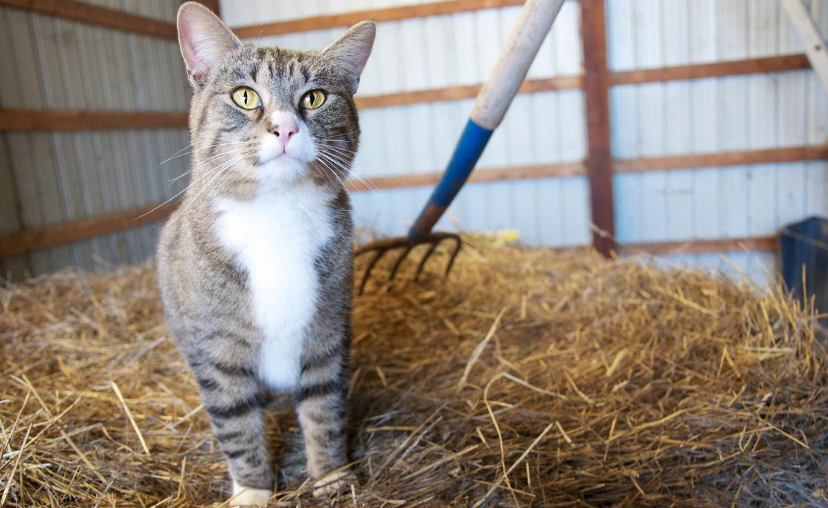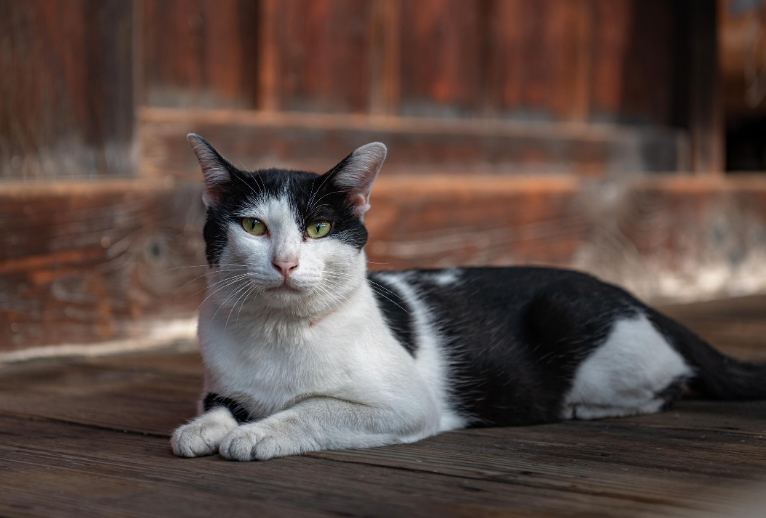Community Cats
You may be asking “What is your Community Cat Return to Field (RTF) policy?” The program is an important alternative to shelter admission for outdoor cats. The RTF policy has benefits for the cats, people in the community, and the area from which the cats come. Through this program, free-roaming outdoor cats are no longer taken into the shelter and housed. Instead, they are sterilized/vaccinated, and returned to their outdoor homes. Whether the cats are friendly or non-socialized to humans, they do not require a specific caretaker. While this program sounds similar to “Trap Neuter Return” (TNR), it is different. While TNR typically focuses on identified colonies of outdoor cats, RTF’s focus is on colony prevention. It is geared to the outdoor cats that Good Samaritans often call us about or bring to the shelter.
Do RTF Programs work?
Return To Field programs are 7-10 times more effective at getting cats back to their owners than taking them into a shelter.
Many outdoor cats have homes, or multiple homes! Since the cat return-to-owner rate at Humane Indiana is only 0.03%, we know that taking cats into our shelter is not an effective way of reuniting them with their owners. RTF programs have been shown to be 7-10 times more effective at getting cats back to their owners than taking them into the shelter.
Finally, by sterilizing and vaccinating cats then returning them to their outdoor homes, we are filling an “ecological niche” in the community. That is, we know that there are free-roaming cats in the community. If we remove them from the street, and ultimately euthanize them, the “void” they leave behind will be filled by another cat who will likely produce more kittens and not be protected against rabies. When we return the sterilized/vaccinated cat to its outdoor home, we help to prevent the entry of other cats into that area, ultimately increasing “herd immunity” against rabies, and decreasing the population’s ability to reproduce.

Eligible Animals
For any cat that is found outdoors and is brought to Humane Indiana, the finder/caretaker is asked a series of questions about the cat at intake. The questionnaire the staff will complete is based on the finder’s answers, information about where the cat was trapped or found, and how long that person has seen the cat in the area. In order to qualify for return to field, outdoor cats must be:
- Free roaming and lacking identification (an ID tag qualifies; a collar alone is not considered identification)
- Of a healthy weight (a good indicator that they have someone in their neighborhood feeding and caring for them) and injury-free (as determined by our veterinary staff).
- Kittens 8-12 weeks old, only if a caregiver is identified. Kittens 12-16 weeks old may qualify only if there is an identified food/shelter source. Kittens and cats over 16 weeks of age qualify.
- All admitted cats that do not qualify for the Community Cat RTF Program remain in the care of Humane Indiana.
WINTER & WEATHER CONSIDERATIONS
- Cats will not be released during heavy precipitation, rainfall, or blizzard like conditions.
- During abnormally/unseasonably cold temperatures, cats will be held after surgery until temperatures rise to normal averages and allow for safe habituation. If the cat is friendly, seems to tolerate kenneling, and is not overly stressed, they may be re-evaluated for adoption pathways during inclement weather.
- Trapping is not recommended to the general public during cold snaps.
- Smaller shaves will be made on cats during surgery to allow less skin exposure to the elements.
- Generally, it is still safe to practice Return to Field for cats over 16 weeks of age or over 4 lbs. in the winter because cats are accustomed to the region’s climate.
Helpful Information
-
-
-
If you have found a good candidate for either our Cat Return-to-Field (RTF) program or our Trap-Neuter-Return (TNR) program, you’ll probably need a trap. You’re in luck! Humane Indiana is fortunate to offer a few traps available for rental.
You’ll need to reserve one in advance please. Pick up is available Monday through Saturday from 11:00 am to 4:00 pm. There is a $60 CASH deposit for each trap, and the rental fee is $5.00 per day, per trap. When you bring the trap back, we will refund your money minus $5 per day, per trap. Please take care of the trap, because If you do not bring the trap back in the same condition we gave it to you, your deposit will not be returned.
-
-
1. Donated Cat Shelters. Ask your community to donate storage bins (like Rubbermaid). Line the bins with Styrofoam, cut out a doorway, and voila! Instant shelter.
2. Build it Better. Got handy staffers or volunteers? Neighborhood Cats offers detailed instructions on building the ultimate feral cat shelter.
3. In a Pinch, Raid the Trash. A cardboard shelter is better than no shelter. Elevate it off the ground to keep it from getting wet. Line it with newspapers and cover the lid with plastic; a garbage bag will do.
4. . Keep it Steady. Use sheets of plywood to weigh down lightweight shelters made from plastic, cardboard, Styrofoam, etc.
5. Tight Quarters. Cats rely on body heat to stay warm, so keep your shelters small for colonies with just a few cats. For more populated colonies, go with multiple shelters of a larger size.
6. Warm and Dry. “Because it resists moisture, straw is the top choice for insulation and bedding in your feral cat shelters,” says Alley Cat Allies. Avoid blankets, because they absorb moisture like a sponge.
7. Shovel Out. Yes, cats can get snowed in, so it's important to remove snow from all entrances and exits to their shelters. Shovel regularly to stay ahead of the game.
8. Skip the Salt. Alley Cat Allies cautions against using salts and chemicals designed to melt snow near your colonies. They can be toxic or can hurt a cat’s paw pads when licked off paws or ingested from melting puddles.
9. Keep Water Bowls Full. Note that extreme cold weather can increase a cat's energy and nutritional needs. Don't forget extra water to prevent dehydration.
10. "Wet" Their Appetite. Wet food in insulated containers is ideal for cold-weather feeding because it takes less energy to digest, leaving more energy for keeping warm.
-
Materials
· 30-35 gallon plastic storage tote with lid
· Yardstick or metal straight edge
· Utility knife
· Sheet of 1 inch thick rigid foam insulation board, 8x2 feet
· Straw
Assembly Instructions
1. Cut a 6x6 inch doorway on each of the long sides of the storage bin, toward the corner and a couple of inches above the ground.
2. Cut the foam insulation board to fit the floor of the bin.
3. Roughly line each of the interior walls of the bin with insulation board. Leave a uniform gap of at least 3 inches between the top of the wall pieces and the upper lip of the bin.
4. Cut two holes in the insulation board, aligned with the door holes.
5. Stuff the bottom of the bin with straw (NOT hay!) to hold the interior wall pieces in place.
6. Cut the final piece of foam insulation board to rest on top of the interior wall pieces. Cover the bin with its lid.
-

Barn Cats
What's a barn cat? Barn cats are undersocialized cats in need of some level of housing and food to survive. They can thrive in barns, stables, or warehouses, etc. and coexist wonderfully with little to no human contact. They're extremely beneficial to their environment as they typically serve as a great natural source for pest control.
How can you help? We have several barn cats simply needing a safe place to lay their heads at night. If you have space for a barn cat, please consider becoming a member of our free Barn Cat Host Family program. Humane Indiana will assist you in acclimating the cat to its new environment. We spay/neuter and provide vaccinations for the cat at no cost to you. We also provide cat food and any needed supplies. Apply today.
Question
If you have questions on any of the programs above, please contact our Intake Coordinator at (219) 922-3811 ext. 211 or email intake@humaneindiana.org.


